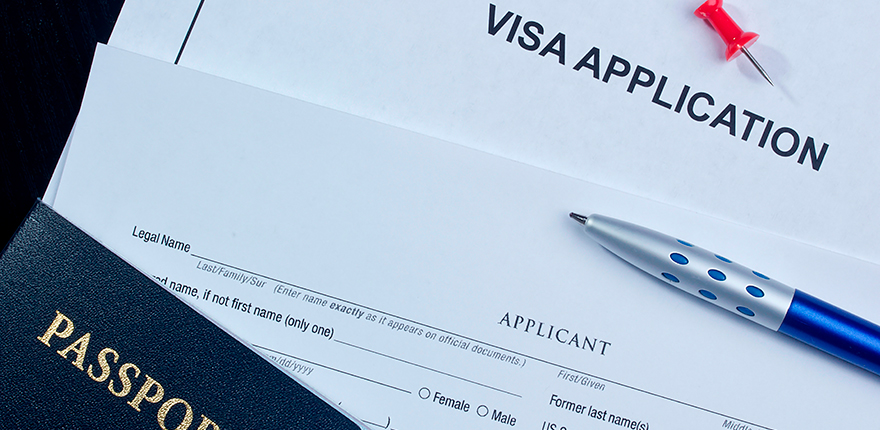In this post, I’d like to talk to you about the digital nomad visa, which we have done a lot of sworn translations for in recent months.
The digital nomad visa is currently one of the most practical and convenient methods of moving to live in Spain for people who can be considered to be digital nomads.
What is a digital nomad?
A digital nomad is a professional with a stable income (almost always in the IT or related sectors) who works remotely and can, therefore, work from anywhere with an internet connection. This gives them the possibility of living anywhere, continuing to work remotely and changing where they live when they want to.
The classic example of a digital nomad is an employee of an IT company who has a contract with their employer located outside Spain and who can easily do their work from anywhere in the world where there is an internet connection.
To reside legally in Spain, digital nomads need to apply for a digital nomad visa, which gives them permission to reside legally in Spain while keeping the same job and their employer’s contributions.
According to the recent Startups Act (BOE of 21 December 2022), the maximum period of the digital nomad visa for Spain is 1 year, with the possibility of renewing this visa or applying for a residence permit of up to 3 years.
Requirements to be a digital nomad in Spain
Where to apply for the Digital Nomad Visa
The Spanish Foreign Office, the Ministry of Foreign Affairs, publishes an up-to-date list of the digital nomad visa requirements on the websites of the respective Spanish consulates.
So the first thing to do is to find the website of the Spanish consulate that applies to you.
For example, if you are in Russia, the Spanish consulate in Moscow has the detailed requirements on the following website.
If you are in another country, you can find the consulate that applies to you using the map on the MAEC (Foreign Office) website.
If you are already legally in Spain, your authorisation will be processed by the Large Companies and Strategic Groups Unit (UGE-CE) of the Ministry of Inclusion, Social Security and Migration.
I’m sure that if you are reading this blog you will have already read a lot about the digital nomad visa for Spain and its requirements. So you will know that although there is basic documentation required, when it comes to applying each case is different and it is advisable to get advice from a qualified lawyer to find out exactly what documentation you will need to provide.
As sworn translators, we can only list the documents that we translate most often for this type of visa.
The following needs to be accredited with documentation:
- Monthly income: not less than 200% of the monthly national minimum wage (SMI) per year for the applicant them self; 75% of the monthly national minimum wage for the applicant’s spouse (always added to the applicant’s amount); and 25% of the monthly SMI per year for each minor child or other dependent accompanying them.
These are the minimum figures. To calculate whether you meet the exact amount, it would be best to consult with your consulate and, if possible, with a registered lawyer as well. It is likely that you will also have to provide proof of funds by presenting bank statements or certificates.
- The fact of having permanent work at/for a company outside Spain (employment or professional relationship) is usually demonstrated by presenting your employment/professional services contract. In the case of an employment relationship (you are an employee of a company), it is often required to prove that the company has been established for a certain period of time and is operating. Certificates issued by the tax authorities and/or business registers are submitted for this purpose. The same applies if you are self-employed, you will have to prove that you have not just registered as such, but that you have been registered for some time. The exact minimum length of the employment or professional relationship itself should be confirmed with your consulate and a good adviser, as this can vary from case to case.
- Applicable experience of at least 3 years (to be accredited with documentation, e.g. CV and/or professional diploma). Remember that the experience has to be in the relevant field; a diploma unrelated to the work you do as a digital nomad will not be of much help.
- You will also need to prove that you are the beneficiary of health insurance (public or private) that remains valid in Spain, either through an agreement with Social Security or, in the case of private insurers, that they are authorised to operate in Spain. In the case of public insurance, this is usually demonstrated by an affidavit issued by the company together with a certificate issued by the Social Security body. Consult your adviser or consulate directly, as there are different documents for this in each country.
- Not having a criminal record (criminal record certificate with sworn translation, if applicable). Sometimes a declaration of no previous convictions is added.
- Residence in the consulate’s territory will often have to be proven.
- Copies of full passports and/or national ID cards, the completed forms and proof of payment of fees are always submitted.
If you need a sworn translation, get in touch with us. We respect every document we translate, we take care of each translation.
You can call us at +34 636 732 859 or send us an email at traducciones@linguafranca.es. We will be happy to help you!
Digital Nomad Visa documentation
To give you an idea about which documents are usually provided, this is a non-exhaustive list of the digital nomad visa documents for which we very frequently do sworn translations into Spanish:
- Employment contract/contract for the provision of services
- Pay slips
- Bank statements and certificates
- Certificate of social security cover
- Letter from company authorising teleworking and being covered by the national social security system.
- Company certificate issued by the tax agency and/or business register
- Apostilled criminal record and, if applicable, accompanied by a sworn translation into Spanish.
- CV
- Passport (not normally translated, but always accompanies all applications)
- Medical certificate
- Copy of academic qualification
- Insurance policy
Remember that the forms must be completed and the fees paid, and that this list of documents is very generic. However, it may be useful to check whether your document is something that is frequently provided for this type of visa.
Digital Nomad Act Spain
As I have mentioned, the law that regulates Digital Nomad Visas in Spain is the Startups Act, passed on 21 December 2022 and published the following day in the BOE (State Official Gazette).
In addition to the law itself, which provides the legal framework, the list of documents and requirements may vary in each particular case, depending on the applicant’s country and specific situation.
For example, until recently for countries such as Russia it was permitted to submit non-certified translations (regular translations) of many of the documents required (e.g. employment contracts). However, this requirement has been changed and all Russian documentation needs to be translated into Spanish by a sworn translator.
It is also important to note that sworn translations for Spain have to be carried out by a sworn translator appointed by the Ministry of Foreign Affairs and Cooperation who is on the ministry’s official list.
Countries with Digital Nomad Visas
Nowadays, it is not only Spain that offers digital nomad visas, a lot of countries are competing to attract nomads!
Have a look, you might be interested in a change of scenery. Some of the countries with digital nomad visas:
- Spain
- Portugal
- Greece
- Italy
- Mexico
- Brazil
- Georgia
- France
- Mauritius
- United Arab Emirates
- Hungary
- Estonia
- Latvia
- Germany
- Romania
- Andorra
- Croatia
- Iceland
- Albania
- Seychelles
- Thailand
- Taiwan
- Malaysia
- Some Caribbean countries such as Antigua and Barbuda and the Bahamas
And there’s more! If you have a country in mind, the most practical and reliable way to check whether it offers digital nomad visas when you are enquiring (mobility legislation is changing at the speed of light!) is to check directly on the website of the respective Ministry of Foreign Affairs.
And if the web page is in a foreign language, automatic translation can be very useful for that. For everything else, we are sworn translators!
Here at Lingua Franca, we are specialists in translating documents for visas, so if you need the services of an official sworn translator with extensive experience, don’t hesitate to contact us. Have a good trip!
Request your free quote without obligation, we guarantee a quick response and a firm delivery time.
You can call us at +34 636 732 859 or send us an email at traducciones@linguafranca.es. We will be happy to help you!

Gerente de Lingua Franca Traducciones Juradas







